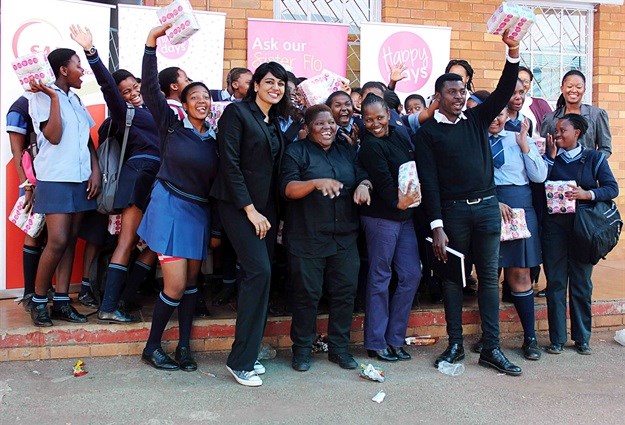
Top stories






More news


Marketing & Media
Ads are coming to AI. Does that really have to be such a bad thing?














MimiBizBox is a business-in-a-box tool whereby disadvantaged women can sell affordable sanitary pads in their local communities, thereby creating an independent living for themselves.
Kasavan explains that women have historically played second fiddle to their male counterparts in earning income, despite the demographic fact that women increasingly have to step up as the sole breadwinners in their families.
The South African census statistics of 2011 reports that 14% of the population’s households are headed by women and 5% of households have female breadwinners, where a married woman is the head of the household. “For such women, taking control of their financial future as a woman is no longer a matter of choice but an absolute necessity. Women have the right to financial freedom, as well as the freedom to choose any education and career they want,” says Kasavan.
To assist women in the orders of magnitude which are required to bring about meaningful change in South Africa, Mimi Women is itself gearing up for accelerated distribution. It is in the process of raising R10m capital from women entrepreneurs to build a sanitary towel production facility. “Our intent this Freedom Day is to educate every woman on their right to financial freedom. Our Mimi Agents for Change campaign was specifically launched for this vision,” explains Kasavan.
Apart from potentially giving thousands of women the opportunity to have direct access to an income, the company aims to use the capital raised from the initiative to erect a production plant. The factory will enable the company to locally produce the sanitary pads and further create job opportunities for women in the country.
The ‘business-in-a-box’ model offers women an affordable start in running their own business, and the capability to grow it into a network of similar-minded women. With an investment of R600, women can turn a profit within three months, enabling them to break the minimum wage barrier. The MimiBizBox includes 60 packs of pads (10 sanitary pads per pack), a branded t-shirt, marketing materials and a step-by-step business manual which will guide the new business owners in the right direction. Each pack costs the agent R10 and sells for R15, delivering them a profit of R300 per 60 pads sold.
“This Freedom Day we are creating a call to action for 100 women entrepreneurs to each invest R100,000 each in this venture,” says Kasavan.
While this is a call to people’s consciences, the business case itself is clear that it will achieve profitability within three years. “We are going this route to bypass the delays usually associated with the traditional development finance institution processes. Our mission is urgent: each day’s delay results in more women and girls becoming locked into the cycle of poverty. This quantum of money is in any case spent on good causes each year by the type of women we are approaching – our argument is that by concentrating their CSI spend we can make a real and immediate difference. Men are invited, but we believe it is women who will most readily recognise the urgency,” explains Kasavan.
The Mimi Women business venture has already been backed financially by some women, including South African social entrepreneur Wendy Luhabe. Founder of Bridging the Gap, her first exercise in social entrepreneurship was as a founding partner of Women Investment Portfolio Holdings in 1994, which listed on the JSE in 1999.
“Our concept aims to make empowerment a reality for many women within a short period of time,” concludes Kasavan.